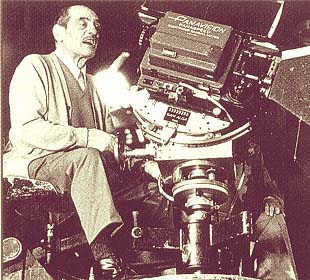Feb
4
El callejon de los milagros
Posted by: Brian | February 4, 2009 | Comments Off on El callejon de los milagros
“El Callejon de los Milagros” is told in chapters, in which individual characters’ lives are explored and seen within a larger framework. The film is very frank in the way it depicts Mexico City and the society and is especially realistic in the portrayal of the culture. The chapters in which individual characters are explored, demonstrates an in depth analysis of how the characters function under the societal pressures of daily life. For example, the character, Rutilio constantly surrounds himself with men, which could be perceived simply as male camaraderie, and nothing more. With the pressures of the machismo culture, it is difficult to imagine how a man could openly identify himself as gay without being persecuted. As a result, Rufilio is forced to live his life according to the status quo. At first Rutilio’s sexual orientation is only hinted at by the indifference he shows towards his wife after she surprises him with an anniversary gift and the desire to make “love.” Yet over time it becomes apparent that he is sexually frustrated and emotionally disturbed after years of sustaining a façade. Rutilio shields his true identity by talking about how women are “muy complicados” and in addition the aggression he has towards his wife only seems to be natural after watching several other Mexican movies in which the men are abusive towards women.
Like other films we have watched in this class, “El Callejon de los Milagros” does not end well. The film is not formulaic and instead, emphasizes the problems that plague Mexico. The characters are all forced into situations as a result of pressure and societal constrictions. It seems that the characters are only able to go on with their lives as a result of having false dreams of hope. A mysterious man courts Alma and at this point it seems that there is hope and a possibility for a happy ending, when he responds that she can open her eyes, now that she is living her dream. However we discover that he wants to turn her into a prostitute, in which she eventually gives into. While Rutilio hopes to carry on his sexual relationship with the muchacho in secret, Alma hopes to be eventually reunited with Chava and lastly, Susanita hopes to find true love. All of the characters inspire hope in the audience, which could possibly signify the hope they have for their nation. However, like the other films, this hope cannot immediately mend or heal a nation.
